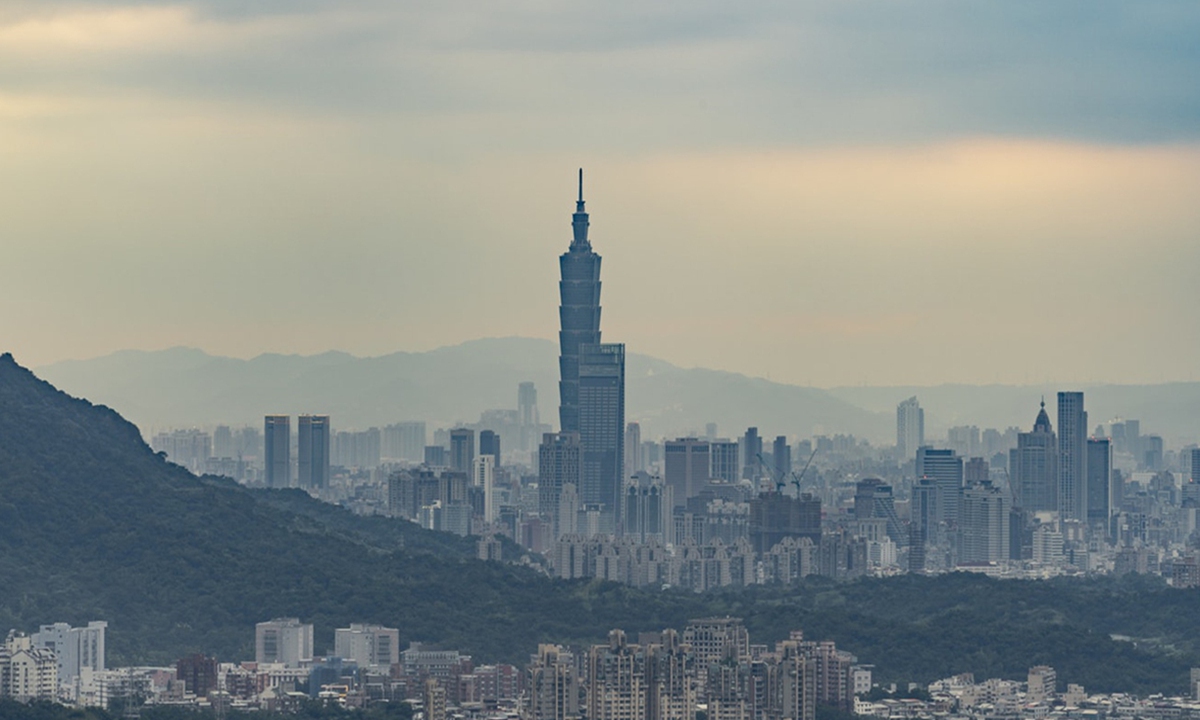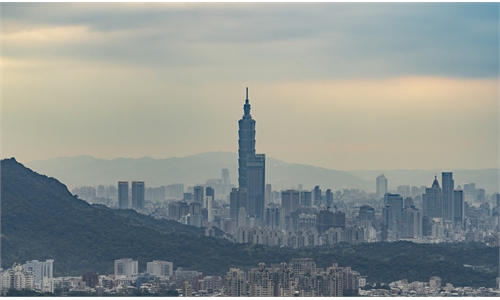Limited cross-Straits ferry services stir up public dissatisfaction toward Taiwan's DPP

A view of the Taipei city, Taiwan island Photo: Unsplash
Despite louder calls from the public in China's Taiwan region to fully reopen ferry routes between Taiwan's outlying islands of Kinmen and Matsu and the nearby mainland cities, Taiwan authorities continue to allow only limited ferry service, which has sparked public discontent.
People in Kinmen and Matsu are disappointed that cross-Straits ferry services have not returned to the pre-pandemic normal, observers said, calling on the Democratic Progressive Party (DPP) authorities to fully reopen the services instead of using cross-Straits exchanges as a bargaining chip for political gains.
According to the Taiwan authorities' "mainland affairs council," ferries between Taiwan's outlying island of Kinmen, which is very close to the mainland, and the mainland city of Xiamen will continue beyond Monday, when they were originally scheduled to end. Services had been suspended for almost three years due to the COVID-19 epidemic.
Taiwan authorities said that some additional trips will be scheduled between Taiwan's outlying islands and the mainland starting Tuesday. Also, the need for nucleic acid testing for mainland tourists was lifted the same day.
But the current services are restricted to residents of the two small islands, mainland spouses of Taiwan residents, and students studying in the two islands, media reports said.
On December 22, 2022, Taiwan authorities announced that it would allow a limited reopening of ferry links, with a maximum of one ferry trip a day from Kinmen to Xiamen and no more than two trips per week from the Matsu to Fuzhou, Fujian Province, from January 7 to February 6.
The ferry services still exclude businesspeople from the Taiwan region, triggering a strong backlash.
James Wu, president of the Xiamen-based Taiwan business association, said what the Taiwan authorities have done is not only discriminatory but insulting to mainland-based Taiwan businesspeople. Wu said they would use their votes to punish the Taiwan authorities.
Regional lawmaker Chen Yu-Jen from Kinmen, also a member of the opposition Kuomintang (KMT) party, criticized the DPP authorities for not showing sincerity in promoting the normalization of cross-Straits ferry services, which would cast a shadow over the recent signs of cross-Straits detente once again, media reported.
Considering the past moves by the DDP authorities to block cross-Straits exchanges, it is likely to be a "bumpy and tortuous" process to fully resume the cross-Straits ferries and direct flights as well as other exchanges, said Xin Qiang, deputy director of the Center for American Studies and director of the Center for Taiwan Studies at Fudan University.
To further push forward cross-Straits exchanges depends on whether the DPP authorities really care about people's welfare after the mainland has continued to show goodwill to facilitate the cross-Straits exchanges, Xin told the Global Times on Tuesday.
Taiwan regional leader Tsai Ing-wen has always stigmatized and demonized exchanges between the two sides as the re-warming of cross-Straits ties goes against her intention of seeking "Taiwan secession," Xin said.
He said DPP authorities, which are trying to use cross-Straits exchange issues as a political bargaining chip, have deviated from the mainstream public opinion in the region, which is likely to affect their votes in the regional election campaign.
As of Monday, the latest public polls with more than 34,000 respondents in the Taiwan region showed that about 80 percent of the respondents said it should reopen the door for mainland tourists to Taiwan soon. Another public poll published on January 12 showed that nearly half of the public supports opening cross-Straits exchanges and dialogue on the premise of the 1992 Consensus.



